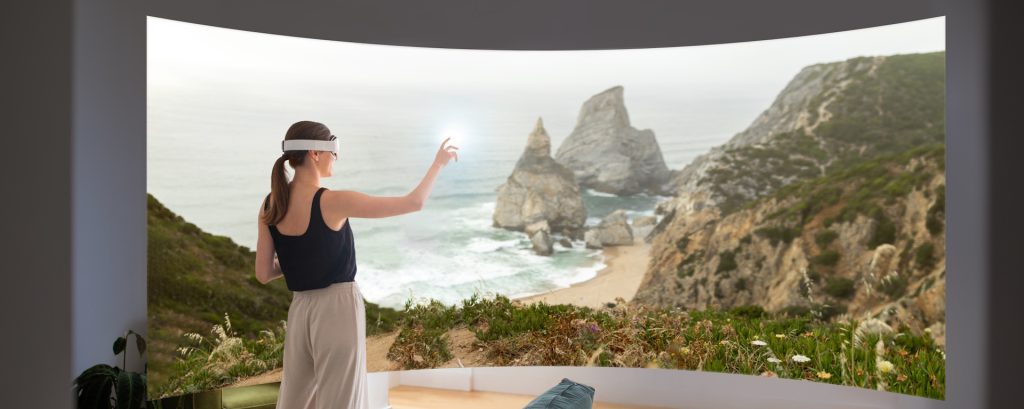Virtual reality (VR) is revolutionizing the hospitality industry by offering immersive previews of hotel properties, giving guests the chance to experience their destination long before arrival. As this technology becomes more accessible, hotels are adopting it to boost guest engagement, build trust, and ultimately, increase bookings. VR is shaping up to be a game-changer, setting a new standard in the way hotels present themselves to potential guests.
Why Virtual Reality in Hotel Previews?
Virtual reality is quickly becoming a preferred method for enhancing the hotel booking experience. Here are the primary reasons why VR is valuable for both hotels and travelers:
- Enhanced Guest Confidence: With VR, guests can explore rooms, amenities, and even nearby attractions, helping eliminate booking uncertainty.
- Better Decision-Making: Travelers can compare hotel features visually, making it easier to choose the property that best suits their needs.
- Increased Bookings: Hotels utilizing VR often see an uptick in direct bookings as prospective guests are more inclined to reserve after engaging in a virtual tour.
Focus Keyword: Virtual Reality Hotel Previews
Other relevant keywords: immersive hotel tours, VR hotel experience, virtual hotel tours.
The Technology Behind VR Hotel Previews
To create these immersive experiences, hotels are leveraging advanced 360-degree video and 3D rendering technologies. This cutting-edge tech enables prospective guests to:
- Virtually walk through rooms: See different room types, layouts, and design features to better understand their options.
- Experience hotel amenities: Explore pools, restaurants, spas, and gyms as if they were physically on-site.
- Discover nearby attractions: Some hotels allow guests to virtually explore local attractions or scenic spots, giving them a holistic view of the destination.
Check out how this works with Marriott’s VR hotel previews here.

Benefits to Hotels and Guests
Both hotels and travelers benefit significantly from VR technology. Here’s how:
Key Benefits for Hotels:
- Increased Customer Trust: Providing a real-life visual of the property minimizes the chances of guest disappointment.
- Higher Conversion Rates: VR captivates potential guests more than static images or traditional videos, leading to better conversion.
- Competitive Advantage: Hotels using VR technology stand out in a crowded market, appealing to tech-savvy customers looking for a more interactive experience.
Key Benefits for Guests:
- Less Anxiety About Booking: VR gives guests confidence in what they are booking, reducing the risk of disappointment upon arrival.
- Personalized Experiences: Guests can interact with the hotel’s offerings, focusing on aspects that matter to them, such as room views or proximity to key amenities.
How Hotels Are Implementing VR Previews
More and more hotels are adopting VR technology as part of their marketing and booking strategies. Here’s how some major players in the industry are doing it:
Notable Examples:
- Marriott International: Marriott uses VR to let guests explore rooms, event spaces, and even virtual locations, providing a highly interactive experience.
- Hilton Hotels: Hilton offers 360-degree VR tours of their luxury properties, allowing guests to explore the surroundings and amenities before booking.
Curious about experiencing a VR hotel tour? Check out Hilton’s virtual tours
Optimizing VR Previews for SEO
To ensure that virtual hotel tours are discoverable by search engines, hotels need to adopt SEO best practices. Here are some key strategies:
Geo-Targeted Keywords
Including local SEO keywords such as city names, nearby attractions, or cultural landmarks will help target local search traffic. Phrases like “virtual tour of [City] hotel” can make a significant impact on local search results. Semgeeks
Mobile-First Indexing
Since most users access VR content on their mobile devices, it’s crucial to ensure that VR experiences are optimized for mobile viewing. Google’s mobile-first indexing prioritizes websites that are mobile-friendly, making mobile optimization a must.
Descriptive Metadata
Incorporating detailed metadata and file descriptions for VR content is essential for search engines to understand and properly rank the content. This includes using descriptive file names for VR tours, including room types, features, and relevant amenities. ACCIYO
Conclusion
Virtual reality is no longer a novelty in the travel industry; it’s quickly becoming an essential tool for hotels to attract and engage potential guests. By investing in VR technology, hotels can offer immersive, transparent, and engaging booking experiences. For guests, the opportunity to experience a destination virtually before booking sets a new standard for trust and decision-making. As VR technology continues to evolve, its impact on hotel marketing will only grow, driving higher booking rates and guest satisfaction.
If you want to read more about AR and VR Travel information, please visit www.ARVRTravel.com.
